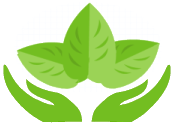The Cradle for Nature group has been involved for many years in academic research to find practical, sustainable ways of reclaiming old opencast coal land in south Wales.
Exciting news in 2024
Stump Up For Trees (STUMP) has taken over our lease of the land at Varteg and is now managing the site for the future. We at Cradle for Nature are delighted to have found another group of people interested in using the site and who hope to build on our research for the benefit of nature, for woodland creation and enhancing biodiversity, education, local people and carbon sequestration.
We look forward to passing the baton: sharing the knowledge we have gained from our long-term project for the benefit of local people and the environment.
Martin would have been so pleased to see the site looked after by Stump Up For Trees during his retirement. Sadly he did not live to see that legacy.
For those who have landed on our site via the link from STUMP's site, thank you for your interest. For those who arrived from elsewhere, do check out their website: https://stumpupfortrees.org/
Another piece of news is that a bacteria has been named in honour of Martin - Mycolicibacterium haighii. Ryan Thompson, a post-grad at Newcastle University, has named it having found it in Alder trees during his research at Varteg in August 2021. Martin would be amused but feel greatly honoured.
Update in 2023
Having lost our leader, Emeritus Professor Martin Haigh, who sadly passed away on 4th February 2022, the Cradle for Nature volunteers are making progress in developing partnerships to continue his work of widening the project to involve interested local people in improving the poorly reclaimed opencast areas of south Wales and creating a wildlife corridor. We are reaching out to the charity Stump Up For Trees, local councils and the Wildlife Trust. Please see the Diary pages for more details of our activities.
Introduction
Poor vegetation performance and land degradation is a widespread problem on the reclaimed surface coalmine lands of South Wales. The 'Cradle for Nature' project is an NGO research venture that aims to determine how to achieve geoecological self-sustainability on degraded surface mine sites where the obstacles to revegetation success include extreme auto-compaction and low nutrient status of the mine-spoils.
This project's experimental sites are located on degraded opencast coal-land at Varteg in Torfaen, Wales. This land was officially 'reclaimed' after surface coalmining in 1963. The project's aims are to establish a self-reinforcing spiral of habitat improvement in the ecology and the soil. In addition to soil testing, the project features formally established 10 and 20-year forestation trials designed to assess the effect of three alternative approaches to tree planting, as well as an array of different fertilisation treatments, on tree survival and growth in mixed plantings. These trials focus on two key species that are commonly used in land reclamation contexts: Alder (Alnus glutinosa (L.) Gaertn), which is used as a nursemaid species, and Welsh or Durmast Oak (Quercus petraea (Matt.) Liebl).
Over the past 20 years volunteers, led by Professor Martin Haigh at Oxford Brookes University, have planted thousands of trees. Many of these same people go back each year to measure them, check on how they're growing and see how the landscape is developing.
This website hopes to cater for all kinds of visitors, ranging from academics interested in land reclamation, soil and biological research through to the layman, probably amused by the antics of scientists and volunteers on a wet Welsh hillside, and including the academics and volunteers themselves! Contributions to the site have come from the academics and volunteers, who have worked on the research project over many years, without which the website could not exist - thank you.
